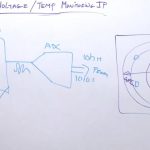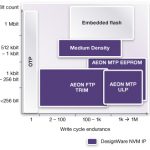Last week was the ARM earnings call, giving the Q4 results and a summary of 2014. 12B chips containing ARM processors were shipped last year which has meant that they have grown in all their major end-markets: mobile, embedded intelligence, and enterprise infrastructure. Almost half of those 12B chips were in mobile, around 5.6B.… Read More
Semiconductor Intellectual Property
Do You Need a Silicon Catalyst?
Lately there has been significant concern over the rising costs of designing in silicon and the troubling decline in venture investments in semiconductors. These alarming trends include fewer IPOs, a falloff in the amount and frequency of early stage seed investments, and comparatively low industry organic growth rates. A … Read More
Using NoCs to Reduce Power
Earlier this week I moderated a webinar at Sonics entitled NoC 102: Using SonicsGN to Address Low Power Requirements. Drew Wingard, the CTO of Sonics, presented it. It goes without saying that power is a major concern in SoC design, not just with chips for battery powered devices but also tethered devices. A major cost of ownership… Read More
Open Forum for Semiconductor Professionals!
The semiconductor industry has never been more exciting than it is today, at least not in my 30 years of experience. Things are moving faster than ever before making collaboration at all levels a requirement. At SemiWiki we are afforded the privilege of passes to semiconductor conferences around the world. We also have access to… Read More
Webinar: How IoT Designs Driven by Cost Power Security
SoCs being developed for the fast growth Internet-of-Things market will sell for and operate on a small fraction of the power of mobile devices’ chips. More importantly, IoT SoCs will be far more vulnerable to hacker attacks than the much better protected chips in portable devices. As a result, designers developing SoCs targeting… Read More
Temperature Monitoring IP to Revamp SoCs
With increasing density and functionality of chips at extremely thin silicon and metal layers, temperature has become critical. The temperature situation can become worse with wireless enabled 24/7 power-on devices. In such a scenario, a device must manage its thermal profile dynamically to keep the temperature within tolerable… Read More
New Suite of ARM IP for Mobile
ARM had a big press/analyst show at the Epic Roasthouse here in San Francisco this morning. They announced a new portfolio of IP targeted at the next generation mobile experience. There were 4 components to the announcement:
- A new microprocessor, the Cortex-A72. More details below
- New CoreLink CCI-500 Cache Coherent Interconnect
CEVA and LTE: Happy Together
Long Term Evolution (LTE)-based 4G technology is reshaping the wireless infrastructure landscape, and that brings a new set of opportunities for IP core licensor CEVA Inc. and its DSP offerings for multi-mode LTE base stations.
LTE devices—both handsets and radio base stations—are haunted by power constraints, mainly due … Read More
NVM IP now Available for On-Chip MCU Code
As of today NVM IP has been mostly used in SoC or IC to support very specific needs like analog trimming and calibration or encryption key integration for Digital Right Management (DRM) purpose. In other words small size (less than 1K-bit) few times programmable (FTP) NVM IP was enough to support these needs, thus most of the NVM IP… Read More
NoC 102: Using SonicsGN to Address Low Power Requirements From IoT to Servers
At the end of last year, I moderated a Sonics webinar to introduce the concept of a network-on-chip or NoC. It was called NoC 101 and the replay is still available here.
Well it is a new year and time for chapter 2. I will be moderating a webinar next Wednesday February 4th at 10am pacific time. Once again the webinar itself will be delivered… Read More





A Century of Miracles: From the FET’s Inception to the Horizons Ahead